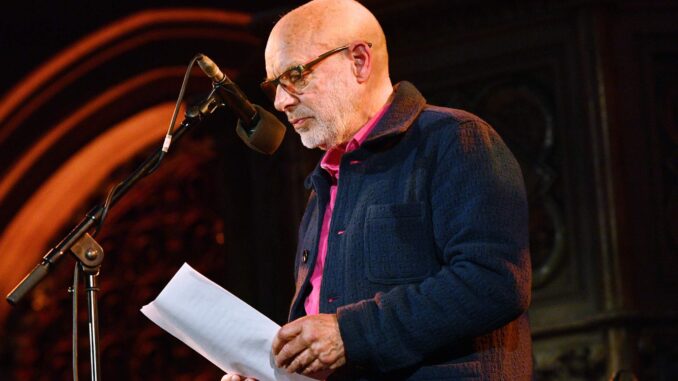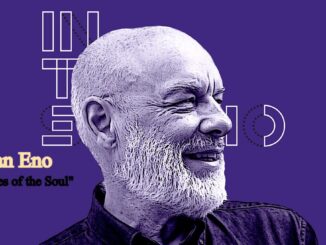
Legendary composer and music visionary Brian Eno has found himself at the center of a heated debate following controversial remarks he made during a panel discussion at the European Art and Activism Forum in Berlin earlier this week. Eno, known as much for his ambient musical genius as for his outspoken activism, made comments about recent geopolitical developments that many have interpreted as inflammatory or dismissive of key global concerns.
During a conversation titled “The Artist as a Voice for Change,” Eno addressed the growing tensions in Eastern Europe, climate inaction, and what he described as “the performative nature of Western democracy.” His statement that “some leaders prefer war because peace doesn’t sell newspapers or weapons” drew immediate applause from some audience members, but online, the reaction was starkly different.
Within hours, hashtags like #BoycottEno and #EnoInsensitive began trending on social media platforms. Critics accused the 76-year-old of oversimplifying complex issues and disrespecting the efforts of activists and civilians who are suffering in conflict zones.
Several politicians and cultural figures weighed in, including German MP Annalena Weber, who tweeted:
“Brian Eno has contributed so much to the arts, but his recent comments are both irresponsible and hurtful to those risking their lives in war-torn regions.”
Eno’s supporters, however, have come to his defense, asserting that his words, though provocative, were meant to critique systems of power and not the victims of conflict. Music journalist Arjun Basra wrote in The Sound Collective:
“Eno has always challenged the mainstream narrative. We can disagree with his tone or timing, but silencing critical voices—especially those of artists—sets a dangerous precedent.”
In response to the backlash, Brian Eno released a statement via his official website:
“I regret that my comments have been interpreted as dismissive of human suffering. That was never my intention. My critique was aimed at the global systems that perpetuate cycles of violence and exploitation. I stand with all those seeking peace, justice, and dignity.”
Still, the controversy has cast a temporary shadow over Eno’s upcoming exhibition in Paris, with organizers confirming heightened security measures due to expected protests.
While it remains to be seen whether this storm will have a lasting impact on his legacy, one thing is clear: Brian Eno’s commitment to stirring the waters of art and politics continues to provoke, inspire, and, at times, divide.


Be the first to comment